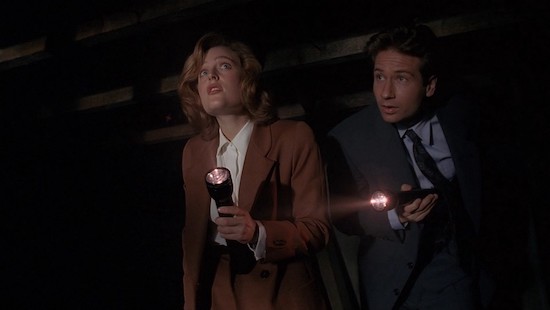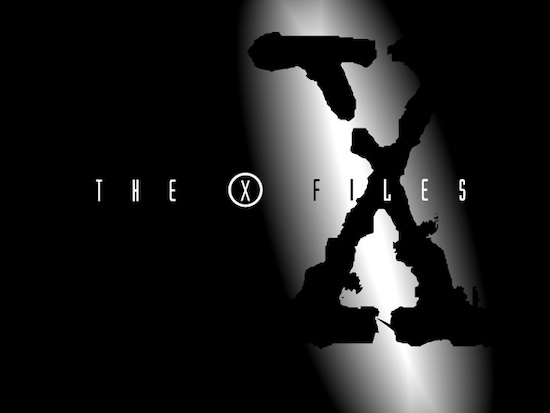Only love can heal the wounds of the past. However, the intensity of our woundedness often leads to a closing of the heart, making it impossible for us to give or receive the love that is given to us. To open our hearts more fully to love’s power and grace we must dare to acknowledge how little we know of love in both theory and practice. We must face the confusion and disappointment that much of what we were taught about the nature of love makes no sense when applied to daily life.
Bell Hooks – All About Love (2000)
”But you saved me! As difficult and as frustrating as it’s been sometimes, your goddamned strict rationalism and science have saved me a thousand times over! You’ve kept me honest. You’ve made me a whole person. I owe you everything… Scully, and you owe me nothing. I don’t know if I wanna do this alone. I don’t even know if I can. And if I quit now, they win.”
Mulder – The X-Files: Fight the Future (1998)
My story starts with me as a fan. And to be a fan is to know that loving trumps being beloved.
Carrie Brownstein – Hunger Makes Me A Modern Girl (2015)
The year was 1994. I was nine years old, lost and strange and lonely. My parents had divorced two years earlier and I spent most of my time living with my mum and stepdad, who alternated between loving union and bitter arguments, with each other and with me. I had one good friend at school, Zoe, whose parents were also separated. Like a lot of children who experience trauma and loss at a young age, we developed a furtive interest in two things: sex and horror. At Zoe’s house after school we did what all good latchkey kids did before the internet was a thing: flicked through forbidden books and magazines looking for anything illicit, watched her mum’s VHS tapes, and played a weird game we called Midwife, which mostly involved one of us taking off our knickers and lying on the floor with our knees spread, and the other poking her head under the prone girl’s school dress and yelling “PUSH!”
One sunny spring evening, having exhausted Midwife and her mum’s stash of magazines, Zoe flicked on the TV. It was past the watershed, past Blue Peter and Neighbours and The Simpsons and Eastenders and the news, and The X-Files was starting. We sat together, little bums sinking into the beanbag chair, transfixed through what happens to be one of the most famously frightening cold opens of the entire show: a businessman is working late, alone in an office building. We watch him from the perspective of a panting, unseen intruder, behind a small air vent in the wall. The screws of the air vent start to twist as the man works; it pops off, a long, filthy arm reaches out, then screams and blood and darkness.
The opening credits roll, all spooky music and grainy shots of FBI agents waving flashlights (it seemed dated even then, a year after the show began airing). Zoe and I cling to each other in silent fear and excitement, our hands a knot of sweaty fingers.
The episode was ‘Squeeze’. Season one, episode three. Special Agent Fox Mulder, nickname “Spooky”, has gone from up-and-coming criminal profiler to weirdo exile. Convinced his younger sister was abducted by aliens when they were children, he becomes obsessed with a subset of unsolved crimes and unexplained events the FBI dubs X-Files. Determined to put an end to Mulder’s interest in these paranormal cases, the FBI assigns him a new partner, Special Agent Dana Scully, a scientist and medical doctor fresh out of the FBI academy. Agent Scully is assigned to Mulder in order to bring a scientific, logical perspective to the X-Files, and to report back on her findings to Mulder’s superiors.
In ‘Squeeze’, Mulder and Scully are still getting to know each other. Mulder, passionate and hot-headed and unable to lie about his beliefs or pander to those who don’t take him seriously, is ridiculed by other agents on the case. Scully, a sceptic and a scientist, stands up for him in front of the other agents. Between them they figure out that the criminal who is killing people and extracting their livers in closed crime scenes, without any evidence of a break-in or an escape route, is in fact Eugene Victor Tooms, a 100-year-old but seemingly ageless animal control worker who can squeeze into impossibly tight spaces and who survives on the livers of other humans.

I know how that sounds, written down. And I’m embarrassed to admit that I have never hesitated to buy into the mythology and storytelling of The X-Files: whether it’s a liver-eating contortionist or an alien race or a government conspiracy, I have always been enthralled and easily pleased by the show’s plotlines, as long as Mulder and Scully were at the helm. It was Mulder and Scully I loved, and it was from them that I learned about love over the following formative years.
My interest, that first night, pressed up against Zoe on the beanbag chair in that terraced house in Kent, was in the horror of being alive. As a child who had experienced an unusual amount of the adult world of violence, isolation, cruelty, injustice and fear, I felt like the TV was telling me the truth that night. It made sense to me that Eugene Victor Tooms would break into houses and kill people and eat their livers for no other reason than that the world was a frightening and unfair place.
I didn’t become a fully blown X-Phile (to use the term the fandom knows itself by) right away. After that titillating night at Zoe’s I thought often about that liver-eating killer, any time I wanted a perverse thrill, a rush of adrenaline, making me look over my shoulder as I padded to the bathroom at night, or check under the bed before I went to sleep. Me and Zoe would watch the odd episode, and at Christmas when my nan came to stay I slept on the sofa for a week and watched late-night reruns whilst my sister slept and the r…


